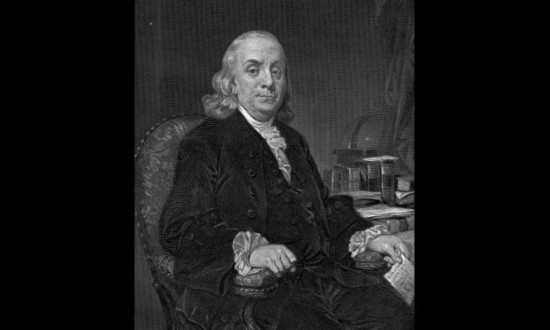Don’t know much about the origins of daylight saving time? Maybe it’s time to learn about the semi-annual time shift, which goes into effect on Sunday across most of the U.S. and in 69 other countries around the world.
Benjamin Franklin is sometimes credited with the invention of daylight saving time. In 1784, he made a joking reference to something like daylight saving in a letter from France — but apparently never thought anything of the sort would ever be adopted.
There’s now broad agreement among historians that the true mastermind of daylight saving time was George Vernon Hudson (1867-1946), a specialist in insect biology (entomology) who left England for New Zealand in 1881. In 1895, when he first presented the idea to the Royal Society of New Zealand, he was mocked. Other members of the society deemed the proposal confusing and unnecessary. But attitudes changed, and he lived to see his brainchild adopted by many nations — including, in 1927, his own.
Yet the first 1,400 words of his 1,700-word obituary in the society’s annals include no mention of his achievement. Instead, the focus is on Hudson’s career in entomology. He was said to have “amassed the finest and most perfect collection of New Zealand insects ever formed by any one person” and was the acclaimed author of “The Butterflies and Moths of New Zealand.”
How did a guy who spent most of his free time studying bugs come up with the idea of daylight saving time? It all began because Hudson became frustrated because dusk came so early in summer that it interfered with his evening bug-collecting rounds — his day job was at the Wellington Post Office. He figured the problem might be solved if the clock were advanced two hours in summer and then shifted back in the winter, when he wasn’t bug-hunting anyway.
In a proposal in support of his idea, he explained that “The effect of this alteration would be to advance all the day’s operations in summer two hours compared with the present system. In this way the early-morning daylight would be utilised, and a long period of daylight leisure would be made available in the evening for cricket, gardening, cycling, or any other outdoor pursuit desired.”
When he presented his idea to the society, his peers acknowledged that it offered some benefits but insisted that “calling the hours different would not make any difference in the time. It was out of the question to think of altering a system that had been in use for thousands of years, and found by experience to be the best.”
Agencies
 Canada Journal – News of the World Articles and videos to bring you the biggest Canadian news stories from across the country every day
Canada Journal – News of the World Articles and videos to bring you the biggest Canadian news stories from across the country every day




I disagree with the way daylight savings is run. It’s a financial failure for economic reasons. We use more energy…Electricity, Propane etc. and bills are a lot more costly at this time of the year at the worst time of the year, SUMMER.
For a large part of the population, electric bills climb higher than any other time of the year. Exception, WINTER, having more sunlight at this time of the year which would help keep the sun light longer and helping to keep those winter cost a little cheaper. That would help out a lot of the population here in the US.
I don’t know the economic value around the rest of the world but it seems that the it would tend to more of an advantage for the most part.
More research should be done on this topic for sure. I loved this article but I don’t think that having more sunlight for, ” In this way the early-morning daylight would be utilized, and a long period of daylight leisure would be made available in the evening for cricket, gardening, cycling, or any other outdoor pursuit desired.” It’s kind of selfish in a way.
Daylight Savings Time encroaches upon the liberty of everyone it affects. Why should the government tell us to change our clocks for one reason or another? If this worthless piece of human feces, George Vernon Hudson, wanted to stay up late catching bugs, he could have slept an hour later during the summer and then only his sorry a$$ would have to deal with a time shift.